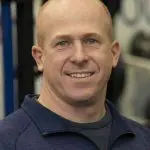
Low back pain in the United States and indeed around the world is at full epidemic status and is plaguing individuals as well as the entire healthcare system. Thirteen years ago, in 2005, Americans spent $86 billion on lower back and neck pain. $86 billion! This number has only increased in recent years as more and more people are seeking out expensive surgical procedures and paying out the nose for anything that will help to get them out of pain.
And how could you blame them?
Pain is an incredibly powerful motivator that hits not only physical but also emotional and psychological levels. The drive to halt this noxious stimulus will bring a person to pursue any avenue available. At this time in history with the many technological and medical advances, it is all but guaranteed that there is an avenue to pursue that will be effective for managing this pain. The difficult part is knowing which will be the most effective for your individual condition.
What I strive to do in this post is to outline a few common causes of lower back pain that most of the population falls into and help you determine the best avenue and strategy for getting you back to living life without pain.
This type of pain often presents with some type of radiating symptom into the gluteal region and in severe cases can travel down the leg and even into the foot. It is often made worse with sitting and can hurt when coughing, sneezing, or straining. Typically, it will hurt worse in the morning as this is when the discs are the most hydrated and swollen. The pain is caused by a damaged disc that is bulging posterior and pressing on the nerve roots that are coming out of the spine. When you bend forward (also with sitting slumped down with poor posture) you push the disc even further back, putting more pressure on the nerves (bad).
Which Exercise/Stretch to Do?
Press-up – Extension in lying
Passively pressing your lower back into extension helps to move the disc away from the nerve and back to its normal resting place. 10-15 of these every few hours will go a long way.
Be sure to keep your back, legs, and hips very loose with the only active muscles being your arms to press yourself up. For you yoga enthusiasts, this is not a cobra pose. The difference is keeping your back very loose and only using your arms to press yourself up.
Pause briefly at the top of the position and immediately lower yourself back down. Only press until the point of pain.
This type of pain is typically non-specific in nature. It is not as clear to diagnose as the discogenic type as the symptoms are not so clear cut. This can be brought on by long-time postural changes, fixations or restrictions within the pelvis, muscle or ligamentous strains, or further injury. There will be at least one clear-cut type of movement that will bring on the pain be it bending backward, forwards, or side bending. Oftentimes times going from sitting to standing or rolling over in bed will cue the pain. Generally, any movement following remaining in a stationary position will also cause pain. The pain may be felt in a broad and general area but upon palpation, the pain epicenter can be found in your lower back near the spine or pelvis.
Which Exercise/Stretch to Do?
Decompression. Depending on the severity of the condition, light to moderate decompression can be a very useful tool. There are multiple ways to accomplish this. The easiest way would be to use a rolled-up towel or bolster placed underneath your hips while lying on your stomach. This will create light traction on the lower part of your back.
Another way of performing light decompression is with a large blow-up, exercise ball. Lay with your chest on the ball and let your lower back and legs hang down and dangle on the floor. The more you roll forward on the ball, the more decompression there will be in the lower back. It is important not to progress too quickly through these as too much distraction could make the injury worse.
This is low back pain that comes on when running or jumping, and usually only develops after you’ve been playing for some amount of time. Your back will initially feel tight or a little stiff, and continue to ache more severely as play is continued. The distribution is diffuse with achiness on both sides of the spine. Ruling out any fracture or pathology, the cause here is tight musculature around your hips that restrict movement in your lower back. When your quads and hip flexors are too tight, they pull your hips into what’s called an anterior tilt. This will then cause your lower back muscles to work extra hard to keep you upright and as they fatigue, they become painful.
Which Exercise/Stretch to Do?
STRETCH! Spend ample time stretching (5-10 minutes twice a day) your hip flexors, quads, and gluteal muscles as those are the main drivers of your pelvis position.
As these muscles loosen up, your pelvis will return to a more neutral position and thus take pressure off your lumbar spine. You will notice that you will be able to play for longer before the pain sets in, or will go away after a few minutes of warming up.
At Knoxville Spine and Sports, our chiropractors and rehab team can treat these types of low back pain every day. Across the board, the adjustment is the first step in conservative care. Ensuring that the joints of the pelvis and lower back are moving the way that they should be is absolutely pivotal to coming back from any type of lower back pain, especially discogenic and mechanical.
Once we have assessed the joint mechanics of the low back we then develop a series of drills and exercises tailored specifically to the individual’s concern. For the majority of people, conservative therapy will be enough to make a positive change to the condition. However, we are absolutely not in the business of keeping people from getting the care that they need, and in the event that our specific avenue is not the best way to get you better, we will absolutely refer you to the place that you need to go to get the most effective care for your condition and your wallet.
Generally speaking, the conservative care avenue is almost always the best place to start as it is both the most cost-effective as well as condition-effective. It doesn’t involve permanently changing anatomical structures and can often get results quickly. The important thing is seeing a conservative practitioner who knows when the condition is beyond what they can treat and knows where to send you to get the results you deserve.
Our motto at Knoxville Spine and Sports is “together for health”, and we strive to work together with other practitioners to get you back to the place you deserve to be, pain-free. For any questions or to schedule an appointment with our chiropractors in Knoxville, call us now at 865-337-5574.

8029 Ray Mears Blvd, Suite 300
Knoxville, TN
37919
Phone: 865-337-5574
Monday
7am-12pm & 1pm-6pm
Tuesday
7am-12pm & 1pm-4pm
Wednesday
7am-1pm
Thursday
7am-12pm & 1pm-6pm
Friday
7am-12pm & 1pm-4pm
Saturday & Sunday
Closed